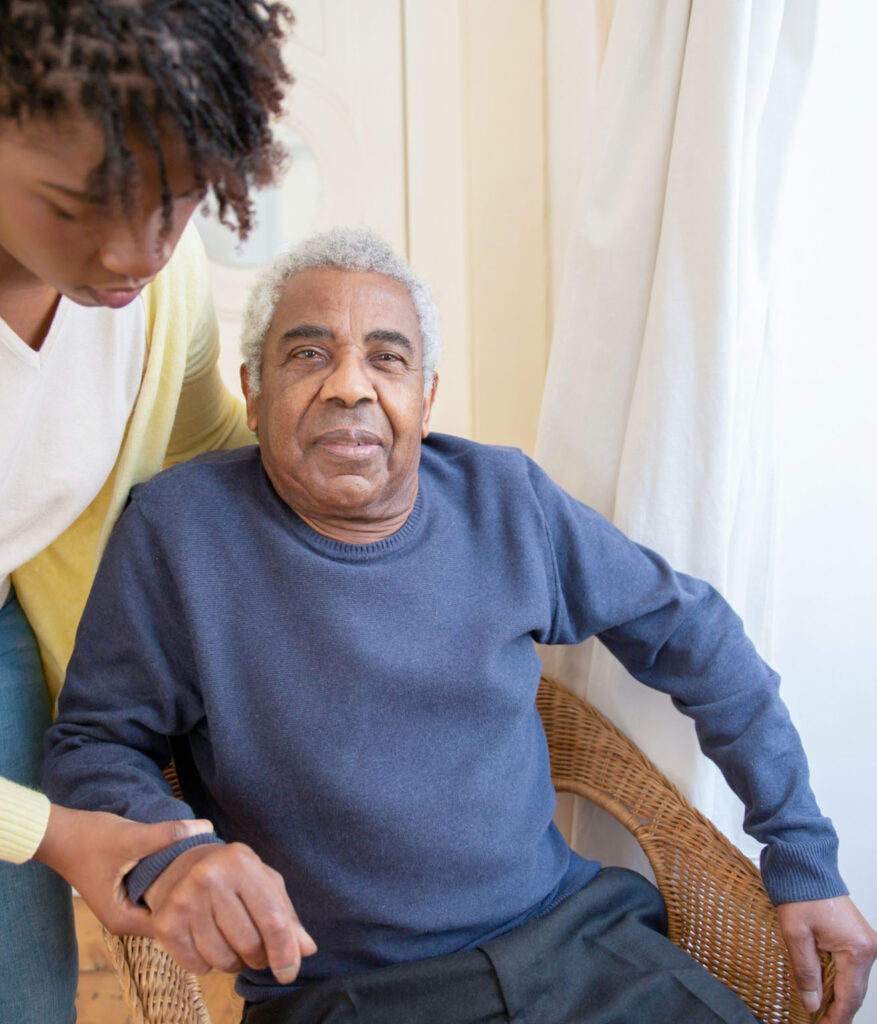Hospice doesn't directly administer medical care, but we assist in obtaining and setting up necessary medical equipment. We also supply essential medical items like bed pads and gloves, sparing patients and families the need to source them separately.
Facing a serious illness can stir up emotional challenges. Lifted Hospice embraces the complete well-being of our patients, offering therapy to address emotional concerns surrounding terminal diagnoses and end-of-life issues. We also have a dedicated clergy member for spiritual support.
Our hospice team supports family caregivers by providing insights into their loved one's illness. We offer guidance and education regarding the care of specific disease symptoms.
Patients dealing with a serious illness may find daily activities challenging. Hospice aims to help with day-to-day care, including tasks like cooking, cleaning, personal grooming, restroom use, bathing, and home dental care.
We extend our services during temporary hospital stays to ensure patients receive the care they need.
In respite care, our team temporarily assumes the caregiver's responsibilities to give them a much-needed break.
A terminal diagnosis often triggers strong emotions in patients and their families. Lifted Hospice offers specialized services to help ease the pain of loss, including grief counseling. These services remain available to the patient's family for up to 13 months after the patient's passing.
Hospice focuses on caring, not curing, and in most cases, care is provided in the patient’s home. Hospice care also is provided in freestanding hospice centers, hospitals, and nursing homes and other long-term care facilities. Hospice services are available to patients of any age, religion, race, or illness. Hospice care is covered under Medicare, Medicaid, most private insurance plans, HMOs, and other managed care organizations. It provides comprehensive medical, emotional, and spiritual support for patients nearing the end of their life journey.
Hospice care involves a team of medical professionals, therapists, counselors, and volunteers who collaborate to manage pain, alleviate symptoms, offer companionship, and provide emotional support. The care is tailored to each patient’s unique needs and can take place in various settings, including homes, assisted living facilities, or nursing homes. While the range of services provided will vary depending on each individual situation and the specific needs, hospice staff are available by phone 24 hours a day/7 days a week.
Individuals with a life-limiting illness and a prognosis of six months or less to live are generally eligible for hospice care. This eligibility is determined by a medical professional in conjunction with the patient’s condition and needs.
Hospice care should be considered when curative treatments are no longer effective or when the focus shifts from curing the illness to managing symptoms and providing comfort. It’s beneficial to start hospice care early to maximize its benefits.
No, hospice care is not limited to cancer patients. It is available for individuals with various terminal illnesses, including heart disease, dementia, respiratory diseases, and more.
Hospice care focuses on palliative treatments to manage pain and symptoms, rather than curative treatments. However, patients can choose to discontinue hospice and resume curative treatments if their condition improves or changes.
Among its major responsibilities, the interdisciplinary hospice team:
– Manages the patient’s pain and symptoms;
– Assists the patient with the emotional and psychosocial and spiritual aspects of dying;
– Provides needed drugs, medical supplies, and equipment;
– Coaches the family on how to care for the patient;
– Delivers special services like physical therapy, speech therapy, and even music and art therapy;
– Makes short-term inpatient care available when pain or symptoms become too difficult to manage at home, or the caregiver needs respite time; and
– Provides bereavement care and counseling to surviving family and friends.
Yes, hospice care can take place at home, as well as in assisted living facilities, nursing homes, and hospitals, depending on the patient’s preference and needs.
A healthcare professional or a family member can initiate hospice care by contacting a hospice provider and discussing the patient’s condition. The hospice team will then assess the patient’s eligibility and needs.
If you have more questions or need further information, please feel free to get in touch with us. Your comfort and understanding are our priorities.
The interdisciplinary team usually consists of:
The patient’s personal physician;
Hospice physician (or medical director);
Nurses;
Hospice aides;
Social workers;
Spiritual care providers or other counselors;
Bereavement professionals;
Speech, physical, and/or other occupational therapists; and
Trained volunteers.
Hospice provides trained volunteers to aid the family and patients. Most hospice volunteers are trained to relieve the primary caregivers, do household chores, and help bathe the patients. Perhaps the most important task, however, is their ability to be “good listeners.” Volunteers also support the work of the hospice program that might not involve patient or family interaction.
Most people receiving hospice care are covered by the Medicare hospice benefit. This benefit covers virtually all aspects of hospice care with little out-of-pocket expense to the patient or family. As a result, the financial burdens usually associated with caring for a terminally ill patient are virtually nonexistent. In addition, most private health plans and Medicaid in most states cover hospice services.
The majority of hospice patients are cared for in their own homes or the homes of a loved one. “Home” may also be broadly construed to include services provided in nursing homes, assisted living centers, hospitals…wherever the patient considers to be home.




8400 Belleview Drive, Suite 155 Plano, TX, 75024
Phone: (972) 777-3000 Fax: (972) 777-3100 Email: care@liftedhospice.com
8400 Belleview Drive, Suite 155 Plano, TX, 75024
Phone: (972) 777-3000
Fax: (972) 777-3100
Email: care@liftedhospice.com